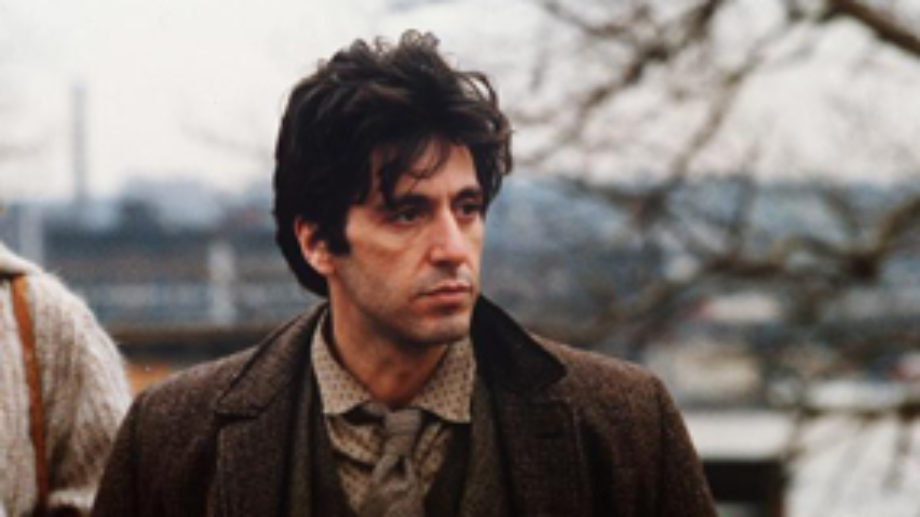
Michael Barker, co-president and co-founder of Sony Pictures Classics, writes about his love for Norman Jewison's films:
“Norman Jewison movies have been a part of my life since I was 8 years old. He is one of those singular masters of the quality mainstream Hollywood movie. Scenes and performances from his pictures have left permanent indelible impressions. This is what the magic of the movies is all about. I have not seen 40 Pounds of Trouble since I was a child, but the content of my dreams for years (which remains clear to me to this day) is the extended chase through Disneyland, which is the climax of that film. With The Cincinnati Kid, Norman gave us the Steve McQueen of our starstruck fantasies (as well as the scene that still cracks me up of Tuesday Weld cutting the jigsaw puzzle pieces so they fit). And then he went even further with McQueen in The Thomas Crown Affair as the coolest, smartest criminal living the life (wine, women, expensive houses and clothes). Norman even provided an un-Hollywood subversive ending (at least so I thought at 14): in the fictional world of Thomas Crown, he got away with his crimes. The craftsmanship of that movie is astounding. This was the first time split screen really worked in a movie. The craftspeople Norman hired – always the best, at the beginning or in the middle of incredible careers – included Haskell Wexler (cinematographer), Hal Ashby (editor), Michel Legrand (composer), etc. This is proof positive that Norman is as great a producer as he is a director (very few can do both so well – Billy Wilder, Howard Hawks, Norman).
Then there’s In the Heat of the Night. When a critic once told me he thought the film was overrated, I told him he thinks that because the film is such seamless entertainment that critics like him can’t imagine it being a work of art at the same time. If anyone says this to you, tell him to go directly to the scene towards the end of the movie where Rod Steiger has Sidney Poitier over to his rundown house, waiting through the night. The scene is quiet, almost passive, but it is the center of the racial conflict and violence of the entire movie, as dramatic as anything in the movie, though few words are spoken. It is in this scene where we understand the characters fully, observe intimacy not seen before between these two men, and foresee the possibility of true racial integration. The acting, the lighting, the screenplay – all perfect. The action thriller resolution that follows this scene proves to be merely a wrapping up of the story, because the real intense glory of the film just happened in this quiet scene minutes before.
There are many scenes with this kind of power in Norman’s movies and they usually entail actors doing incredible work. In addition to the actors mentioned already, so many immediately come to mind. The last scene of In Country is the most moving tribute to Vietnam war veterans I know (courtesy of an amazing performance by actress Peggy Rea). Al Pacino’s summation in And Justice for All is the greatest grandstanding speech of Pacino’s career (yes, I mean that). It causes a floodgate of emotional release that is even beyond the “I’m mad as hell and I’m not going to take it anymore!” rant from Network. And then there is Alan Arkin in The Russians Are Coming, the Russians Are Coming. For me, this is one of the great performances in the history of American cinema. Too often we overlook comic performances when we talk about great acting. Arkin is moving and sincere, and his comedy comes from the depths of warm human feeling. We have Norman to thank for launching film careers like this one. I never tire of this performance, as I never tire of Adolph Caesar in A Soldier’s Story, Vincent Gardenia and Olympia Dukakis in Moonstruck, Denzel in The Hurricane, Warren Oates and Scott Wilson and Beah Richards in In the Heat of the Night, Edward G Robinson in The Cincinnati Kid, Diana Sands in The Landlord (which Norman produced and, oh yeah, Norman is also responsible for starting Hal Ashby’s directing career). A last word for Gaily, Gaily (a lesser known and unavailable title): as a teenage boy in Texas, this movie made a major impression on me. Based on the true story of Ben Hecht’s picaresque adventures as a young man, it was a “go west, young man” kind of movie and I literally took it that way. I read the Ben Hecht autobiography and it was one of the many indications that when I came of age I would get out of Dodge (read: Dallas) as quickly as possible and live a more colorful life. If you run into Norman, ask him about that picture. He and Roger Ebert did research at a certain whore house in Chicago. All I can say is catch these movies and you will not regret it.”
– Michael Barker
Michael Barker will discuss Rollerball in person with Norman Jewison tomorrow, May 28, at the Walter Reade Theater as part of Norman Jewison: Relentless Renegade.
Image: Al Pacino in And Justice for All



